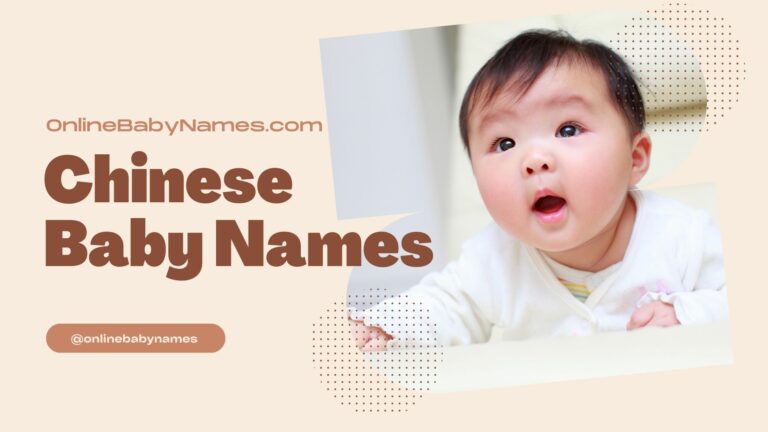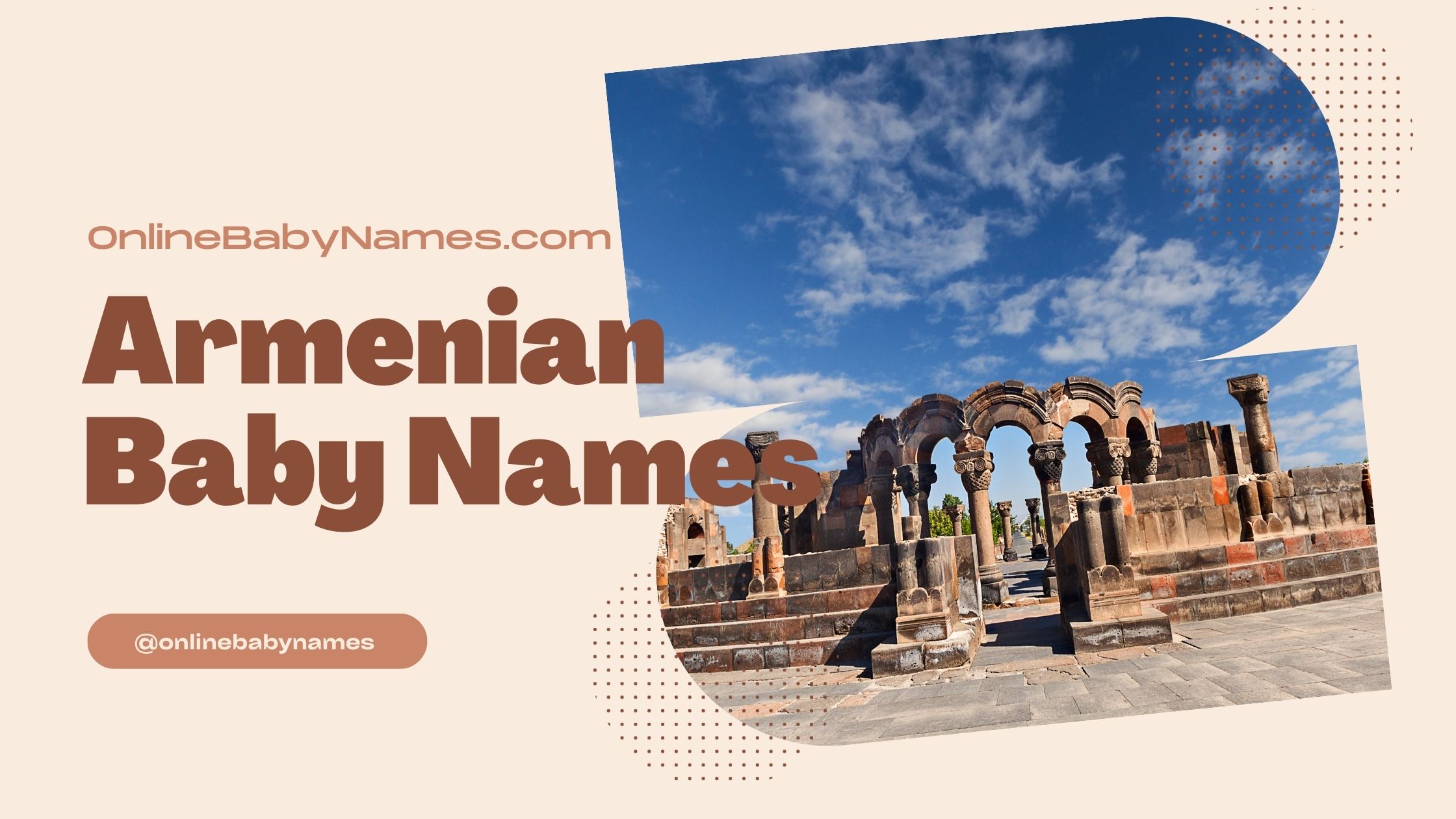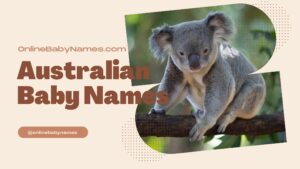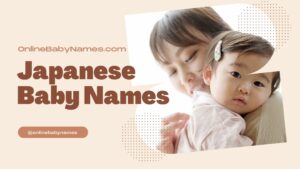
Choosing the perfect name for your baby can be a daunting task, especially with the thousands of names to explore. When it comes to Chinese baby names, it’s essential to understand the cultural significance and how names play a crucial role in shaping an individual’s identity. In this article, I’ll discuss some popular Chinese baby names, their meanings, and the rich history behind each name.
Chinese baby names are often deeply rooted in history and carry unique and auspicious meanings. In Chinese culture, names not only represent one’s identity, but they also carry the hopes and dreams parents have for their child’s future. A well-chosen name can bring good luck and fortune, while a poorly chosen name might lead to hardships later in life. Therefore, selecting the right name involves careful consideration of its meaning, symbolism, and phonetics.
One distinctive feature of Chinese baby names is the use of a single character or a combination of characters to convey the desired meaning. These characters are derived from the vast and ancient Chinese writing system, opening up a world of beautiful and meaningful names for your little one. Let me walk you through some popular choices, their meanings, and the heritage that comes along with them. So, if you’re expecting a baby or looking for some inspiration, read on as we delve into the world of Chinese baby names!
The Rich History of Chinese Baby Names
Chinese baby names have a long and rich history, dating back thousands of years. They are deeply rooted in the culture and traditions of the Chinese people, reflecting their values, beliefs, and even family lineage. Let’s dive into the fascinating world of Chinese baby names and explore their significance and development over time.
One of the unique aspects of Chinese baby names is the use of characters in the naming process. Each character has a specific meaning which influences the overall meaning of the name. Parents often choose characters that represent desirable qualities, positive emotions, or other admired elements in life. For instance, characters representing happiness, prosperity, beauty, or strength are commonly chosen for names.
In addition to individual meanings, the structure of Chinese names differs from Western naming conventions. Chinese names consist of three parts: a surname, a generational name, and a given name. The surname comes first and represents the family lineage, with the generational name usually shared by siblings, and the given name being unique to the individual.
Here’s a breakdown of a typical Chinese name structure:
1. Surname
2. Generational name
3. Given nameOne interesting practice in choosing Chinese baby names is the consultation with a fortune-teller, who may suggest names based on factors such as astrology, numerology, and the baby’s birth date and time. This utilizes the ancient art of feng shui to select names that could bring good luck, fortune, and balance to the child’s life.
Throughout history, social changes and evolving cultural values have influenced name trends in China. Names of historical figures, heroes, and classical literature characters have often been chosen as inspirations for baby names. More recently, there has been a significant shift towards selecting more modern and unique names, sometimes incorporating foreign elements, in an effort to embrace individualism and globalization.
In conclusion, Chinese baby names hold deep historical and cultural meaning, highlighting its society’s values and aspirations. The use of characters, unique name structures, and feng shui-based methodologies further adds depth and richness to their naming practices. Through ever-changing trends and adaptations, Chinese baby names will continue to be an important part of the cultural tapestry in China.
Significance of Characters in Chinese Names
Chinese baby names are unique and deeply rooted in their culture. When it comes to these names, it’s important to understand the significance of characters involved. Unlike in Western cultures, Chinese names contain a given name and a family name, with the family name usually coming first.
A significant factor in Chinese names is the choice of characters, as each character comes with its own symbolism and meaning. It’s quite common for parents to choose characters that represent traits they want their child to possess or values they hold dear. Some popular character meanings include:
- 勇 (Yǒng) – Bravery
- 美 (Měi) – Beauty
- 慧 (Huì) – Wisdom
- 强 (Qiáng) – Strength
- 爱 (Ài) – Love
Sometimes, parents may also incorporate characters that denote:
- Elements: such as 金 (Jīn) for gold or 土 (Tǔ) for earth.
- Nature: for example, 水 (Shuǐ) for water or 木 (Mù) for wood.
- Desirable qualities: like 忠 (Zhōng) for loyalty or 诚 (Chéng) for sincerity.
Chinese names often have a unique emotional and social impact. By choosing characters with positive meanings and qualities, parents hope to influence their child’s life positively and give them a strong foundation to build upon. This can lead to a greater sense of identity and self-awareness, especially when living in a multicultural society.
Another aspect to remember is that some Chinese names are unisex, and can be given to both male and female children. For example, names like 安 (Ān) meaning peace or 平 (Píng) meaning balance. But, there are names that have a clear gender distinction, such as 伟 (Wěi) meaning great for boys, and 婷 (Tíng) meaning graceful for girls.
Finding the right Chinese baby name might take some time and research because of the rich meanings and intricate nuances behind each character. But, it’s crucial to ensure the selection aligns with family values and aspirations for the child. When done right, a well-chosen Chinese name can be a beautiful source of both personal and cultural significance.
Popular Chinese Names for Boys and Meanings
I’ve gathered a list of popular Chinese names for boys along with their meanings, to help you better understand the significance behind these names in Chinese culture. Chinese names often carry a strong meaning, representing qualities such as strength, wisdom, and prosperity.
- Li Wei (李威): The name Li Wei combines the popular surname Li (李), meaning “plum,” with Wei (威), which means “power” or “prestige.” This name implies strength and influence.
- Wang Lei (王磊): Wang (王) is a common Chinese surname, symbolizing “king” or “monarch.” Lei (磊) signifies “rock” or “stone,” often associated with stability and steadfastness. This name conveys a sense of leadership and resilience.
- Chen Hao (陈浩): Chen (陈) is another prevalent surname, while Hao (浩) means “vast” or “grand.” A boy with this name may be seen as someone with great potential and a bright future.
- Zhang Yi (张艺): Zhang (张) is a well-known surname in China, and Yi (艺) represents “art” or “talent.” This name suggests a gifted and skillful character.
Chinese people typically choose names with positive meanings, believing that the name can shape a person’s destiny. In addition to the examples above, there are countless other combinations of characters with auspicious meanings. Here are a few more popular Chinese names for boys:
| Name | Surname (Meaning) | Given Name (Meaning) | Combined Meaning |
|---|---|---|---|
| Liu Xiang (刘翔) | Liu (刘) | Xiang (翔) | Soaring |
| Zhao Yun (赵云) | Zhao (赵) | Yun (云) | Cloud |
| Xu Jia (徐家) | Xu (徐) | Jia (家) | Family, home |
| Yang Ming (杨明) | Yang (杨) | Ming (明) | Bright, clear-headed |
Moreover, some parents might choose a name based on the suggestions of a fortune teller or a specific historical figure they admire. It’s no wonder that choosing a child’s name is considered a critical decision in Chinese culture, as it can potentially reflect the personality, aspirations, and future prospects of the individual.
In summary, Chinese baby names for boys are rich with cultural significance and meaningful elements. By understanding the meanings behind these popular names, you can appreciate the depth and thought put into the process of selecting a name that will accompany the child throughout their life.
Popular Chinese Names for Girls and Meanings
When choosing a name for a baby girl, Chinese culture often places great emphasis on meaning and symbolism. In this section, I’ll share some popular Chinese names for girls and their meanings.
- Xiaomei (晓梅): Xiaomei translates to “little plum blossom” and signifies beauty and resilience. Plums are among the first flowers to blossom in spring, symbolizing endurance. It’s a common name chosen by parents hoping their daughter will possess inner strength and elegance.
- Yanjing (燕京): The name Yanjing means “beautiful eyes” and is given to girls with the hope that they will have a keen insight into the world around them. This poetic name is often associated with intelligence and perception and is very popular in China.
- Jingyi (静怡): Jingyi signifies “peaceful and joyous.” Parents who choose this name for their daughters hope they will lead lives of tranquility and find happiness.
- Yue (月): The name Yue means “moon,” representing brightness and light. Like the moon, it’s believed that a child named Yue will bring warmth and guidance to those around her.
Below is a summary table of the popular Chinese names for girls and their meanings:
| Name | Meaning |
|---|---|
| Xiaomei (晓梅) | Little plum blossom |
| Yanjing (燕京) | Beautiful eyes |
| Jingyi (静怡) | Peaceful and joyous |
| Yue (月) | Moon |
In addition to these popular names, there’s a range of other beautiful and meaningful names that parents can consider for their baby girl:
- Lili (莉莉): Lili, which means “beautiful and pure,” often signifies a girl’s innocence and inner beauty.
- Ping (平): The name Ping stands for “peaceful” and is given to daughters with hopes they’ll have a steady and serene life.
- Huan (欢): Meaning “joy,” Huan symbolizes happiness and cheerfulness for the child.
- Xing (兴): Xing (兴) means “rising” or “flourishing”, reflecting a parent’s hope that their daughter will have a successful and prosperous life.
By understanding the meanings behind these Chinese names for girls, you can appreciate not only their beauty but also the aspirations and values placed on these names by Chinese parents.
Unique Chinese Unisex Names
When choosing a name for your baby, you might want to consider some unique Chinese unisex names. These names can be a wonderful way to incorporate Chinese culture and heritage into your child’s life. They also provide a great option for parents who want a name that doesn’t necessarily conform to traditional gender roles. Here, I’ll share some fantastic unisex Chinese names that you can consider for your little one.
Yun (云) is a beautiful unisex name that means “cloud” in Chinese. It represents a sense of freedom and fluidity, making it an excellent choice for a child with endless potential. This name is also easy to pronounce, making it a versatile option for both boys and girls.
Bao (宝) translates to “treasure” or “precious” in English. It’s an attractive name option for parents who want to convey that their child is cherished and loved. Bao is short, sweet, and has a lovely ring to it, making it ideal for a unisex name.
Qi (启) is another Chinese unisex name that holds a powerful meaning. It translates to “enlightenment” or “to open.” Parents looking for a thoughtful and introspective name might find Qi to be the perfect fit for their child.
A few more examples of Chinese unisex names include:
- Jian (建) meaning “to build” or “to establish”
- Lei (雷) which translates to “thunder” or “lightning”
- Shan (山) meaning “mountain” or “slope”
- Tian (天) representing “heaven” or “sky”
It’s worth noting that the pronunciation and meaning of Chinese names can vary depending on the specific characters used. For example, while the character “云” for Yun means “cloud,” it might have a different meaning if paired with another character. So it’s essential to understand the context and meaning behind the characters before choosing a name.
In conclusion, Chinese culture is rich in unique, meaningful names that can be a great choice for any child, regardless of their gender. I hope these examples inspire you to choose a beautiful Chinese unisex name for your little one, or at the very least, broaden your understanding of the stunning options available within Chinese naming traditions.
Celestial-Inspired Names
When choosing a Chinese baby name, I find that many parents are drawn to the beauty and symbolism of celestial-inspired names. These names often hold a deeper meaning, reflecting the aspirations that parents have for their child. Here, I’ll share with you some popular celestial-inspired Chinese baby names as well as their meanings.
Ming Yue (明月), translating to “Bright Moon” in English; this name symbolizes brightness, purity, and light. It’s a classic choice that continues to be popular among modern parents.
Xing Chen (星辰), meaning “Stars and Constellations,” is a name that reflects the infinite possibilities and aspirations that parents hope their child will reach for, akin to aiming for the stars in life.
Yue Guang (月光), which means “Moonlight,” represents gentleness and elegance. Parents might select this name for their child to exude an aura of grace and refinement.
To make the search easier, here are some celestial-inspired Chinese baby names along with their meanings.
- Tian Lang (天狼): Heavenly Wolf, associated with the star Sirius
- Tian Liang (天亮): Daybreak, symbolizes hope and a new beginning
- Yue Hui (月辉): Moon’s Radiance, exudes grace and elegance
- Xing Yun (星云): Starry Cloud, represents vastness and the mystery of the universe
- Chen Xing (辰星): Morning Star, signifies brightness and awakening
| Name | Meaning | Gender |
|---|---|---|
| Ming Yue (明月) | Bright Moon | Unisex |
| Xing Chen (星辰) | Stars and Constellations | Unisex |
| Yue Guang (月光) | Moonlight | Unisex |
| Tian Lang (天狼) | Heavenly Wolf | Unisex |
| Tian Liang (天亮) | Daybreak | Unisex |
| Yue Hui (月辉) | Moon’s Radiance | Unisex |
| Xing Yun (星云) | Starry Cloud | Unisex |
| Chen Xing (辰星) | Morning Star | Unisex |
In choosing the perfect celestial-inspired name for your little one, my advice is to consider its meaning and its sound. The overall balance between the characters is vital to ensure the name’s poetry and depth. By selecting a name with a celestial theme, parents hope to imbue their child with the qualities of grace, ambition, and wonder that the heavens inspire.
Naming Tips: Considerations for Western Families
When it comes to exploring Chinese baby names for your little one, it’s important to consider several factors, especially if you’re a Western family. Here are some useful tips to help guide your decision-making.
Research the Meanings: Chinese baby names often carry profound meanings that reflect the hopes and aspirations parents have for their children. Investigate the significance of various names and choose one that resonates with your dreams for your child. This will provide your child with a name that has a strong, positive foundation.
Pronunciation: If your family doesn’t speak Chinese, it’s crucial to select a name that’s relatively easy to pronounce for English speakers. Many names can be transcribed into English using pinyin, a system that allows you to pronounce Chinese names using the Latin alphabet. Familiarize yourself with this system to ensure you’re choosing a name that’s both meaningful and simple to pronounce.
Cultural Sensitivity: When adopting a Chinese baby name, make sure you’re being respectful of the culture it originates from. Avoid appropriating names with significant cultural or religious symbolism that may not be appropriate for your child. Consulting with a native Chinese speaker or someone with a good understanding of Chinese culture can help you navigate potential pitfalls.
Family Compatibility: Consider how well a Chinese name blends in with your child’s surname, especially if it’s a Western one. Look for names that complement your family’s last name and roll off the tongue smoothly.
Uniqueness: Chinese baby names can offer a unique alternative to more common names found in Western countries. When choosing a name, you may want to prioritize:
- Names that are uncommon in your country
- Names that share similarities with English-sounding names
- Names that don’t have potentially confusing spellings in English
Popular Chinese Baby Names: You might want to reference lists of popular Chinese baby names while making your decision. This way, you can see which names are most commonly used in Chinese-speaking communities.
For Boys:
- Li (Strength)
- Wei (Great)
- Ming (Bright)
For Girls:
- Mei (Beautiful)
- Jia (Good)
- Ting (Grace)
Ultimately, finding the perfect Chinese name for your baby comes down to striking the right balance between cultural significance, meaning, ease of pronunciation, and compatibility with your family’s surname. With thorough research and a respectful approach to Chinese culture, you’ll be well on your way to choosing a name that your child will cherish for a lifetime.
The Role of Zodiac Signs and Elements
When it comes to Chinese baby names, the Zodiac Signs and Elements play a significant role in the selection process. Let me explain the importance of these factors and their influence on the choice of a child’s name in Chinese culture.
The Chinese Zodiac is a traditional system that consists of 12 animal signs which are believed to govern people’s fortune, destiny, and personality. Each animal sign has unique characteristics, strengths, and weaknesses.
Here’s a quick overview of the Chinese Zodiac cycle:
- Rat
- Ox
- Tiger
- Rabbit
- Dragon
- Snake
- Horse
- Goat
- Monkey
- Rooster
- Dog
- Pig
Each Chinese Zodiac sign is associated with one of the five elements, and these elements also have significant implications on people’s lives:
- Wood
- Fire
- Earth
- Metal
- Water
Since each person is born under a specific animal sign and element, these components are believed to influence their characteristics and fortune, which is why they are taken into account when choosing a baby’s name. A baby’s name is seen as an essential aspect of their future and destiny.
In Chinese culture, names represent a person’s identity, values, and personality. By considering both the Zodiac sign and element, parents can select a name that aligns with their child’s natural attributes and one that has a positive meaning to ensure a harmonious match.
Moreover, Chinese names are often composed of two or more characters, and each character carries a specific meaning. In some cases, parents might incorporate an element or a desirable quality associated with the Zodiac animal into the child’s name, hoping their offspring will inherit those traits.
For example, if a child is born under the Rooster sign, which is associated with attributes such as confidence, hard work, and honesty, their parents might choose a name that highlights these qualities to support their child’s unique characteristics.
Similarly, if a baby is born under the Fire element, which symbolizes enthusiasm, warmth, and passion, parents might look for names with characters representing these qualities to positively influence their child’s personality.
Therefore, the Zodiac signs and elements play a crucial role in shaping the choice of Chinese baby names, reflecting the deep-rooted belief in the power of these factors and their meaning in a person’s life.
How to Pronounce Mandarin Names
Choosing a Chinese baby name can be a beautiful and meaningful experience. However, it’s crucial to know how to pronounce Mandarin names accurately. In this section, I’ll provide some tips on mastering the pronunciation of Chinese names.
Firstly, it’s important to understand that Mandarin Chinese is a tonal language. This means that the meaning of a word changes depending on the tone attached to it. There are four main tones in Mandarin:
- First tone: a high, level pitch
- Second tone: a rising pitch, similar to a question in English
- Third tone: a dipping pitch, which starts low, dips, and then rises
- Fourth tone: a sharp falling pitch
Being aware of these tones will help you pronounce Chinese names more accurately. To practice, try listening to native speakers and repeating after them. Additionally, there are some useful online resources, like audio recordings and pronunciation guides, to aid in your learning journey.
In Mandarin, each character has a single syllable, and names usually comprise two or three characters. To pronounce names correctly, focus on each syllable’s tone and pronunciation. A common naming structure consists of a one-character family name followed by a one or two-character given name. For instance:
- Family name: Li (李)
- Given name: Yi (宜) + Ming (明)
The full name would be Li Yiming (李宜明).
Certain syllables and initials might be a bit challenging for English speakers. For example, the initial sounds of the Mandarin letters “j”, “q”, “x”, “zh”, “ch”, and “sh” might take some practice to pronounce accurately. Here are a few quick tips on pronouncing these tricky syllables:
- j: Like the “j” in “jeep”, but with the tongue touching the roof of the mouth, just behind the upper front teeth.
- q: Similar to the “ch” in “cheese”, but with the tongue in the same position as for the “j”.
- x: Similar to the English “sh” sound, but with the tongue slightly flatter and more forward in the mouth.
- zh: Similar to the “j” in “jam”, but with the tongue curled back slightly.
- ch: Similar to the English “ch”, but with the tongue curled back.
- sh: Similar to the English “sh”, but with the tongue curled back.
Finally, don’t be afraid to ask native speakers for help with pronunciation. They’ll appreciate your effort to learn their language and culture. By practicing these tips and listening to native speakers, you’ll be well-equipped to pronounce Mandarin names with confidence.
Conclusion: Choosing the Perfect Chinese Baby Name
Settling on the perfect Chinese baby name might seem like a daunting task. But with a little research and understanding of Chinese customs, I’m confident that you’ll find a name that’s both meaningful and beautiful for your little one. Here are a few pointers to bear in mind when selecting a name:
- Consider the meaning or symbolism of the characters: Each Chinese character carries its own meaning, and many parents choose names based on positive traits or aspirations they have for their child.
- Seek input from relatives or older family members: Involving family members not only ensures a meaningful name, but it’s also a great opportunity to strengthen family bonds.
- Look into historical or cultural figures: Inspiration can be drawn from famous figures in Chinese history or legendary characters from classic literature.
- Reflect on Chinese zodiac elements: The characteristics associated with the zodiac signs and elements can serve as a thoughtful consideration when naming a baby.
Ultimately, the perfect Chinese baby name is a blend of beauty, meaning, and family values. It might take some time and effort, but rest assured that finding the ideal name is a labor of love that will last a lifetime. Best of luck on your journey to discover the perfect Chinese name for your precious bundle of joy!















